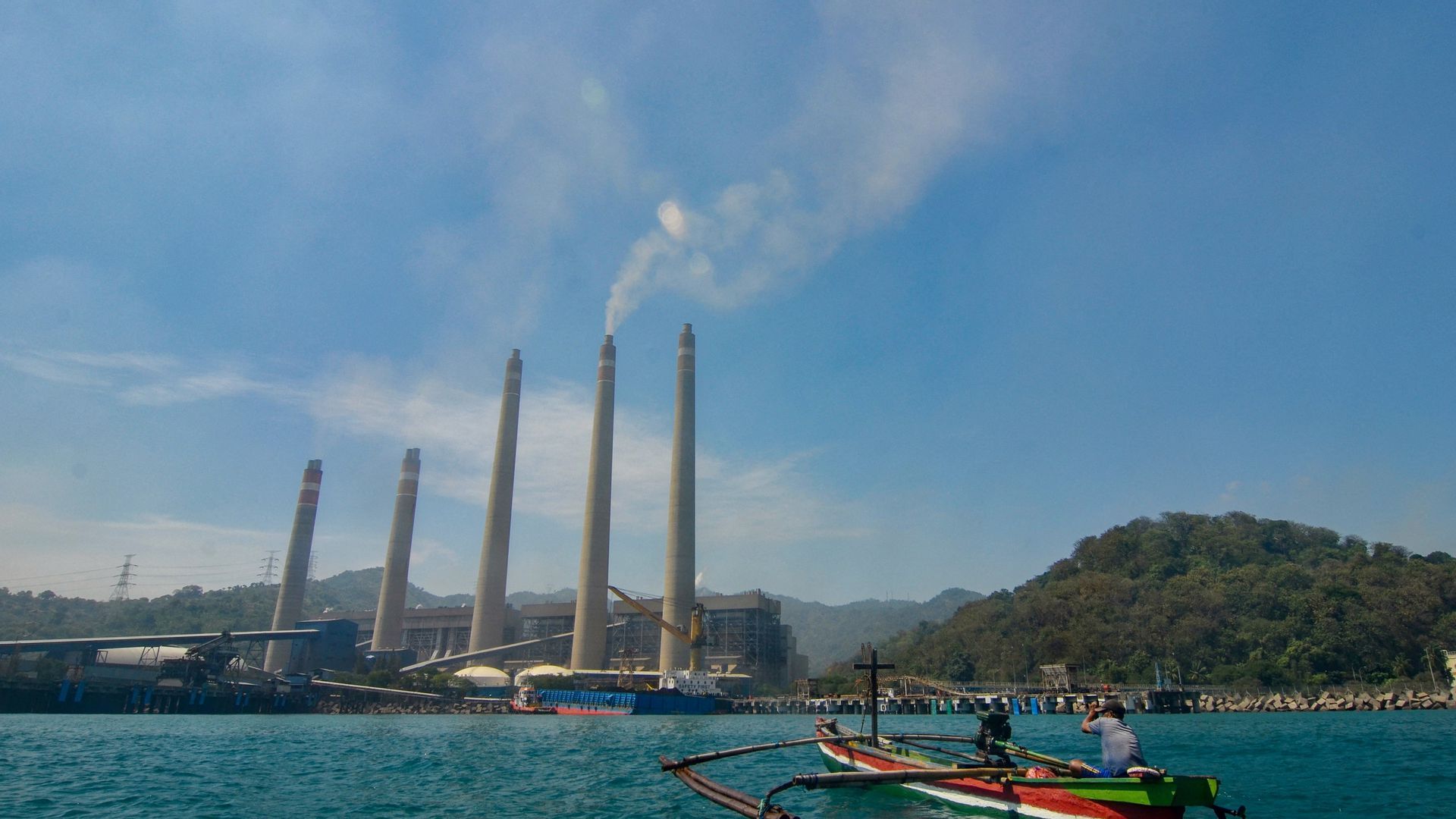US, Japan and EU unveil $20 billion plan to wean Indonesia off coal

- Ben Geman, author ofAxios Generate

Fishermen on their boat as smoke rises from the Suralaya coal power plant in Cilegon, Indonesia, last year. Photo: Ronald Siagian/AFP via Getty Images
The U.S., Japan and a suite of other partners on Tuesday unveiled a $20 billion plan to help Indonesia curb reliance on coal-fired power in the world's fourth-most populous country.
Why it matters: Indonesia, Southeast Asia's largest economy, relies on coal, the most carbon-emitting fuel, for roughly 60% of its electricity.
- It is the largest single climate finance transaction ever, according to a U.S. official, per Bloomberg.
Driving the news: Officials, including President Biden, unveiled the plan at the G20 summit in Bali.
- The Just Energy Transition Partnership (JETP) follows a similar multinational effort announced a year ago to support South Africa's movement away from coal.
Details: The partners involved — the U.S., Japan, Canada, Denmark, the EU, France, Germany, Italy, Norway, and the U.K. — have together pledged $10 billion in public sector funding for the plan over the next three to five years, the White House said. The rest will come from the private sector.
- The goal is to bring about a peak in Indonesia's power-sector emissions by 2030 and have renewables accelerate to provide at least a 34% share by then, per the joint announcement.
- Indonesia also committed to establishing a goal to reach net-zero emissions in the power sector by 2050.
Our thought bubble: The plan tests whether a mix of public and private finance can be logistically translated into a (relatively) quick move away from coal in a huge developing economy.
Between the lines: The initial financing pledges are a fraction of what's needed for equitably transforming Indonesia's energy mix and meeting long-term climate goals.
- Activists and experts "say this will only make a small dent in the approximately $600 billion that Indonesia needs to phase out coal-generated electricity and reach net-zero emissions," the Washington Post reports.
- And while the deal with South Africa announced a year ago helped lay the groundwork for other JETPs, there are already headwinds.
- The South African partnership has "attracted criticism from several of the country’s politicians, including its president, for burdening the country with more debt and containing too few outright grants," the WSJ reports.
What they're saying: Indonesian President Joko Widodo said in a statement that his country is "committed to using our energy transition to achieve a green economy and drive sustainable development."
- "This partnership will generate valuable lessons for the global community and can be replicated in other countries to help meet our shared climate goals through concrete collaborative actions," he added.
President Biden said the new and accelerated targets Indonesia committed to as part of the plan "demonstrate how countries can dramatically cut emissions and increase renewable energy while advancing a commitment to creating quality jobs and protecting livelihoods and communities.”
- U.S. climate envoy John Kerry added in a statement: "We’ve built a platform for cooperation that can truly transform Indonesia’s power sector from coal to renewables and support significant economic growth."